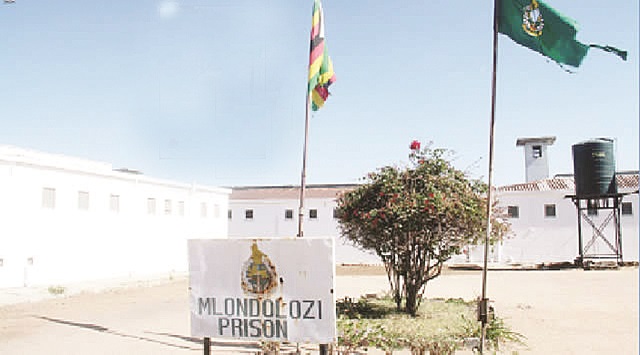Hanging out with criminals. . . The dangers and difficulties of forensic psychiatry

In the 1996 Box Office smash hit movie Primal Fear, Edward Norton playing Aaron Stampler, an altar boy accused of murdering his beloved archbishop, put up a performance that was hailed as a masterclass.
Accused of murder, Stampler is represented by a limelight-seeking defence attorney, Martin Vail who is ably played by Richard Gere. Halfway through the movie, Vail begins to suspect that his client is mentally disturbed, a suspicion that is confirmed by the psychiatrist he hires to do a mental evaluation of Stampler.
They come to this conclusion after Stampler, during a particularly harsh line of questioning from Vail, cracks and reveals a much darker side.
While normally timid, when put under pressure Stampler suddenly transforms into a much more confident character called Roy.
Unlike the stuttering Stampler, Roy is a sure tongued, fast talking hooligan who plays rough even with the lawyer representing him in court.
With both Vail and the psychiatrist he hired convinced he has two personalities residing in one body, Stampler delivers the coup de grâce in court after he transforms into Roy and takes the prosecutor hostage.
A concerned judge immediately prescribes rehabilitation at a mental institution, only for Stampler to reveal in the last scene that he was pulling an act all along.
With the shocking reveal at the end, the movie earned plaudits and Norton was acknowledged with an Oscar nomination.
Two decades after that movie was released, a man who never saw a second of that 130 minute masterpiece, sits in a yellow painted office in Bulawayo and worries that some of the country’s criminals might also pull a fast one on him.
Dr Wellington Ranga, the clinical director at Ingutsheni Central Hospital, speaks like a newsreader retelling a day’s disasters with a smile on his face.
He is the man in charge of the hospital’s forensic unit and so oversees the cases of men and women who committed gruesome acts and have been sent to the mental institution for rehabilitation.
Before the judge bangs his gavel and decides whether the man who killed two people as a civilian and two guards as a convict is guilty, he needs testimony from those in the business of evaluating the mental fitness of criminals.
Drawing a line between insanity and criminality is a tightrope walking act, one that is proving harder to pull off as criminals are using the internet and Hollywood as sources aiding them in their efforts to shrug off the long arm of the law.
“These days it’s becoming a bit of an issue because people are checking how things are done on the internet and watching movies where we’ve got more complicated criminals especially from the West. As you noticed, one of the things that I do is the EEG test, (electroencephalogram) which we do for people who sometimes might try to pretend they’ve got a certain problem,” he said.
An EEG is a test used to find problems related to electrical activity of the brain.
The day a Chronicle newscrew made a visit to Dr Ranga’s office he and a fellow healthcare professional were putting the final touches on a report of a patient that was on the eve of a crucial court appearance.
Despite such diligence, some of the country’s criminals have found a loophole in the country’s laws and are trying to exploit it. Their mouths filled with froth, convulsing and writhing on courtroom floors, many now pretend to have epilepsy in order to walk away scot-free.
“You can go to court and say you’re epileptic and because of the way our laws are structured you can be exempted from your crime. We’re saying it doesn’t make sense and we’re now trying to convince our judges that they’re wrong.
“People have been faking this one a lot. We’ve got a way of detecting that through that complicated test (EEG) which tells us whether this is true or not. The one that I’m writing now is a murder case we had to do an EEG for,” he said.
Despite such tireless efforts from criminals, faking mental illness in order to escape prosecution is a futile exercise according to Dr Ranga.
“The assessment is done over a long period of time. We’re talking years at Mlondolozi Prison. Even if you try to fake it, we keep an eye on you. To fake successfully is therefore very difficult. If you fake successfully, when you commit murder chances of you coming out normal are very slim. If you’re mentally stable and go to a prison for the mentally ill you won’t come out the same,” said Dr Ranga.
Due to the gruesome nature of most crimes committed by the mentally ill, members of the public, particularly those belonging to an aggrieved family might feel hard done by the findings of a psychiatrist who let off the hook those that they feel deserve nothing less than the harshest judgment.
So how do forensic psychiatrists themselves feel about the fact that their findings might spare some of the most gruesome murderers and rapists from serving hard time?
“We don’t have any moral dilemmas because in reality when someone is mentally ill it’s difficult to judge them for what they’re doing. Even when someone strips in the streets you can’t judge them because they’re ill. It becomes difficult when they encroach on the rights of others.
“It becomes really tricky because imagine if your relative gets killed by someone who’s mentally ill. Where do you stand? You just do what you have to do. You also look at both sides because someone would have lost a family member but trying to put someone in jail who doesn’t know what they’re doing isn’t right,” said Dr Ranga.
Around the world debate on the appropriate action to take with mentally ill violent offenders is a bone of contention that has been constantly chewed on by some of the best and brightest legal minds. Yet despite extensive research and debate, there is no universally accepted standard of how to deal with the problem.
Professor Yuval Melamed, wrote in the Journal of the American Academy of Psychiatry:
“In many countries, there continue to be conflicting opinions and mechanisms regarding the appropriateness of treatment and/or punishment for mentally ill individuals who commit crimes.
“The general population is concerned with public safety and often finds it difficult to accept the possibility that a mentally ill individual who commits a crime can be hospitalised and eventually discharged, sometimes after a relatively short time”.
According to Dr Ranga those tasked with assessing or rehabilitating offenders hover “somewhere between the Ministry of Health and the Ministry of Justice. Theirs is to arrest and ours is to treat so we meet somewhere in the middle”.
According to Section 27 of the Zimbabwe Mental Health Act “in the case of murder, odd, inexplicable and bizarre behaviour before, during or after the killing or from the way in which the accused instructs his lawyer or the way in which he behaves must not be ignored, as it may provide the basis for establishing that X is entitled to the special verdict or at least there was diminished responsibility to an extent that constitutes extenuation.
“The psychiatrist who carries out this investigation must be asked not only to give an opinion as to whether X was mentally irresponsible to an extent that a special verdict is justified, but also if X was suffering from diminished responsibility,” it goes on to say.
However, the process of deciding whether a person was mentally ill at the time of committing a gruesome act is difficult. Because they were not at the scene when it happened, psychiatrists basically have to become time travelling investigators, playing detective with an offender’s thoughts to find out if they were mentally fit at the time of committing a crime.
“The courts are interested in whether the person was mentally unstable at the time of committing the offence which is very difficult to determine. They require two reports. That’s the psychologist and the psychiatrist. So they put together the two reports and the judge will be the one who decides depending on the evidence,” said Dr Ranga.
Zimbabwe Prisons and Correctional Services over the years relied on forensic psychiatrist Dr Elena Poskochinova, a Russian expatriate who also sees patients at Chikurubi Psychiatric Unit, Mlondolozi Prison and Ingutsheni Central Hospital.
According to Dr Ranga finding more recruits is made harder by the fact that in their line of work, there is very little margin for error.
“They say we shouldn’t make mistakes. If you make a mistake somewhere it’s a big issue. If you get involved in corruption it’s a jail term for you, which is why people are not interested because you’re better off just practising medicine without thinking about jail,” he said.
Dr Ranga says this is complicated further by the fact that sometimes, they have to come face to face with criminals who leave the courtroom aggrieved should they get condemned by a forensic psychiatrist’s findings.
“Dealing with the whole criminal system is difficult because you end up mingling with criminals and you end up knowing them while they end up knowing you. Your security becomes an issue, more like how it is for high court judges, especially when you have to testify,” he said.








Comments